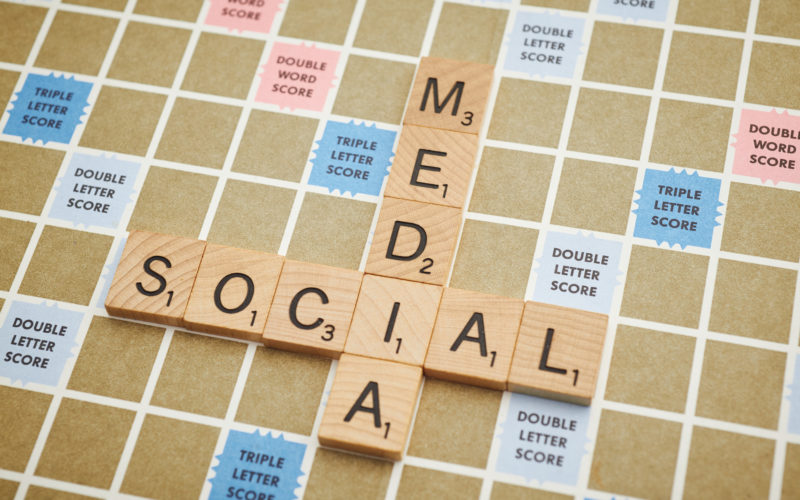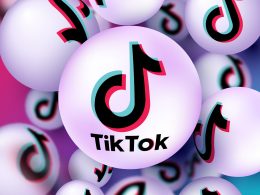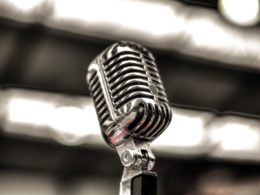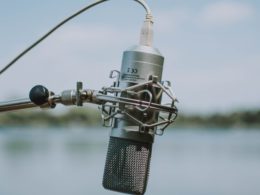Social media’s influence on society is growing. While the increased usage and accessibility has allowed for a new era of global communication and business expansion, the dark side to all of this innovation is coming to the forefront of society. Hate speech, misinformation, fraud, and conspiracy theories have been prevalent since the introduction of mass communication, but now social media has provided a larger, more influential platform for sharing this content. While there are benefits to an open forum of shared beliefs, there are also risks associated with social media’s expanded presence in American homes. The detrimental influence is apparent today: political polarization is peaking as social media usage becomes more pervasive each day.
In response to the January 6th, 2021 riots at the U.S. Capitol, social media platforms have faced immense pressure, from both the media and politicians, to reform their policies regarding the balance between free speech and censorship. Responding to the call to help alleviate societal tension, social media platforms have made controversial decisions regarding user rights and censorship: Twitter removed 70,000 accounts; Amazon, Apple, and Google stopped hosting Parler (the self-proclaimed “Free Speech Social Network”); and Facebook promised “more aggressive restrictions of disinformation.”1[1] Rich Barlow, “Break Up Twitter? Or Ban Trump? Where Does Social Media Go from Here?” BU Today (January 12, 2021), http://www.bu.edu/articles/2021/trump-banned-on-social-media-not-first-amendment-issue/ While the implications of such decisions are not yet completely known, the question of legality has been brought to the forefront of these conversations. In light of these events, this article examines First Amendment implications on social media platforms and legislative immunity afforded to technology companies under Section 230 of the 1996 Communications Decency Act.
The First Amendment prevents Congress from “abridging the freedom of speech, or of the press.”2[2] U.S. Const. amend. I. Since platforms like Twitter are private entities and are not affiliated with the government, they are free to regulate their own operations and content.3[3] Amber Phillips, “No, Twitter is not violating Trump’s freedom of speech,” Wash. Post: Politics (May 29, 2020), https://www.washingtonpost.com/politics/2020/05/29/no-twitter-did-not-violate-trumps-freedom-speech/?arc404=true. However, complications arise when politicians use private platforms, like Twitter, to communicate with constituents.4[4] Neil Merkl, First Amendment implications, § 140:27 (5th ed.) (Oct. 2020). Although politicians and members of the general public have recently argued that censorship of social media hinders freedom of speech, Twitter’s terms of service provide great leeway for the platform to control the conversation and their usership.5[5] Id. As we have recently seen in practice amid political conflict, Twitter “retain[s] the right to require a user to delete prohibited content or permanently suspend a user’s account for violations of terms of service.”6[6] Id.
Additionally, social media giants are further protected by legislation, such as Section 230 of the 1996 Communications Decency Act, which grants immunity to platforms like Twitter from liability that could arise from its users’ content and further enables them to censor the information disseminated on their social media pages.7[7] Anshu Siripurapu, “Trump and Section 230: What to know” Council on Foreign Relations (Dec. 2, 2020), https://www.cfr.org/in-brief/trump-and-section-230-what-know. Section 230 states that “No [social media company] shall be treated as the publisher or speaker of any information provided by another information content provider.”8[8] 47 U.S.C. § 230( c )(1). Simply put, social media platforms cannot be held liable for the content posted by its members. Further, Section 230 gives social media providers wide discretion on censorship. The statute states, “No [social media company] shall be held liable on account of any action voluntarily taken in good faith to restrict access to or availability of material that the provider or user considers to be obscene, lewd, lascivious, filthy, excessively violent, harassing, or otherwise objectionable.”9[9] 47 U.S.C. § 230( c )(2)(a). Given the explicit language and implications set forth in Section 230, it is clear that the drafters of this legislation “wanted internet companies to be able to regulate themselves . . . without fear of being culpable for everything their users post.”10[10] Anshu Siripurapu, “Trump and Section 230: What to know” Council on Foreign Relations (Dec. 2, 2020), https://www.cfr.org/in-brief/trump-and-section-230-what-know. While Section 230 leads to vigorous debate, social media would not be what it is today without this broad, protective legislation as “[Section 230 has] been called the ‘twenty-six words that created the internet.’”11[11] Id.
There are different views regarding how to handle social media regulation and if the government should play a larger role within the social media world. The pro-regulation side argues that the “government [vindicates] a public interest through regulation.”12[12] John Samples, “Why the Government Should Not Regulate Content Moderation of Social Media,” CATO Institute (April 9, 2019), https://www.cato.org/policy-analysis/why-government-should-not-regulate-content-moderation-social-media They believe that governmental intervention is necessary as social media continues to operate out of control, ensuing chaos and harming society.13[13] Margarita Valkovskaya, “In Favor of the Public Interest: Social Media Should be Regulated,” Carnegie Council for Ethnics in International Affairs, (Jan. 31, 2020), https://www.carnegiecouncil.org/publications/articles_papers_reports/in-favor-of-the-public-interest-social-media-should-be-regulated. But does imposing liability for content and limiting censorship capabilities reap net benefits? The anti-regulation side argues that increased governance will come at a cost to American values, individual liberties, and public exchange.14[14] Cylde Wayne Crews, “The Case Against Social Media Content Regulation,” Competitive Enterprise Institute (June 1, 2020), https://cei.org/issue_analysis/the-case-against-social-media-content-regulation/. Regarding current technology-focused legislation, some disapprove of the broad protections afforded to social media companies in Section 230 while others suggest that “Section 230 . . . is in the best tradition of American respect for the value of free information exchange.”15[15] Derek E. Bambauer, “How Section 230 Reform Endangers Internet Free Speech,” Brookings (July 1, 2020), https://www.brookings.edu/techstream/how-section-230-reform-endangers-internet-free-speech/ The social media regulatory debate is heated and sharply divided, and the solutions remain unclear.
The power granted to social media platforms and further notions of governmental intervention have faced wide criticism by politicians and members of the direct public on both sides of the aisle. As no solution to satisfy the masses has been identified, the future of social media’s immunity protection and censorship abilities remains shaky.16[16] Anshu Siripurapu, “Trump and Section 230: What to know” Council on Foreign Relations (Dec. 2, 2020), https://www.cfr.org/in-brief/trump-and-section-230-what-know. Growing political pressure and international regulatory trends could change social media as we know it today within the United States.17[17] Anshu Siripurapu, “Social Media and Online Speech: How Should Countries Regulate Tech Giants” Council on Foreign Relations (Feb. 9, 2021), https://www.cfr.org/in-brief/social-media-and-online-speech-how-should-countries-regulate-tech-giants.
Written by: Anna Conte & Daniel Erber
Edited by: Melissa Ronan & Taylor Sandella
1 Rich Barlow, “Break Up Twitter? Or Ban Trump? Where Does Social Media Go from Here?” BU Today (January 12, 2021), http://www.bu.edu/articles/2021/trump-banned-on-social-media-not-first-amendment-issue/
2 U.S. Const. amend. I.
3 Amber Phillips, “No, Twitter is not violating Trump’s freedom of speech,” Wash. Post: Politics (May 29, 2020), https://www.washingtonpost.com/politics/2020/05/29/no-twitter-did-not-violate-trumps-freedom-speech/?arc404=true.
4 Neil Merkl, First Amendment implications, § 140:27 (5th ed.) (Oct. 2020).
5 Id.
6 Id.
7 Anshu Siripurapu, “Trump and Section 230: What to know” Council on Foreign Relations (Dec. 2, 2020), https://www.cfr.org/in-brief/trump-and-section-230-what-know.
8 47 U.S.C. § 230(c)(1).
9 47 U.S.C. § 230(c)(2)(a).
10 Anshu Siripurapu, “Trump and Section 230: What to know” Council on Foreign Relations (Dec. 2, 2020), https://www.cfr.org/in-brief/trump-and-section-230-what-know.
11 Id.
12 John Samples, “Why the Government Should Not Regulate Content Moderation of Social Media,” CATO Institute (April 9, 2019), https://www.cato.org/policy-analysis/why-government-should-not-regulate-content-moderation-social-media
13 Margarita Valkovskaya, “In Favor of the Public Interest: Social Media Should be Regulated,” Carnegie Council for Ethnics in International Affairs, (Jan. 31, 2020), https://www.carnegiecouncil.org/publications/articles_papers_reports/in-favor-of-the-public-interest-social-media-should-be-regulated.
14 Cylde Wayne Crews, “The Case Against Social Media Content Regulation,” Competitive Enterprise Institute (June 1, 2020), https://cei.org/issue_analysis/the-case-against-social-media-content-regulation/.
15 Derek E. Bambauer, “How Section 230 Reform Endangers Internet Free Speech,” Brookings (July 1, 2020), https://www.brookings.edu/techstream/how-section-230-reform-endangers-internet-free-speech/
16 Anshu Siripurapu, “Trump and Section 230: What to know” Council on Foreign Relations (Dec. 2, 2020), https://www.cfr.org/in-brief/trump-and-section-230-what-know.
17 Anshu Siripurapu, “Social Media and Online Speech: How Should Countries Regulate Tech Giants” Council on Foreign Relations (Feb. 9, 2021), https://www.cfr.org/in-brief/social-media-and-online-speech-how-should-countries-regulate-tech-giants.




